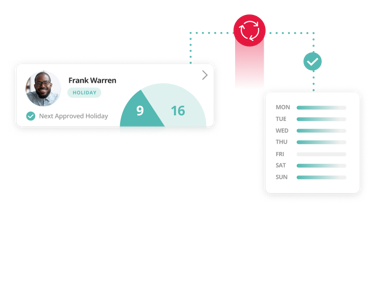5 Benefits of Employee Self Service

How does employee self service work?
Employee self service (ESS) is a tool that allows employees to access, view and manage information related to their employment. It simplifies a wide range of HR processes, such as booking annual leave, viewing payslips, and updating personal or financial information. As well as being a time-saving tool for managers and HR professionals, it gives employees ownership over these tasks.
Some more advanced employee self service portals use AI technology to automate routine tasks and provide predictive analytics. For example, AI can suggest optimal times for taking leave based on workload patterns, assist in career development by recommending relevant training courses, and predict potential issues like burnout by analysing employee engagement data.

5 benefits of employee self service
Let’s take a look at the 5 main benefits of employee self service for medium-sized businesses.
Employee self service and remote working
One of the most important benefits of an employee self service portal for modern businesses is its ability to support those who are working remotely. They allow employees to log on anytime from anywhere, so they can view and manage their own HR information as needed. This flexibility is crucial for remote workers who may have different schedules and working environments from line managers and HR staff.
Communication can be a major concern with remote working. A self service system helps to address this issue by enabling employees to handle many tasks independently, such as requesting annual leave or updating personal details. This not only empowers employees but also saves time for their line managers, and is one of the many ways that HR software can streamline processes for remote working.
Streamline your operations with HR self service software
As we’ve explored in this article, there are many benefits of an employee self service portal, including:
- Increasing data accuracy
- Simplifying annual leave management
- Saving time and money
- Increasing productivity and employee engagement
- Improving accessibility to essential services
PeopleHR’s self service HR software offers enhanced AI capabilities, making it even easier for you to streamline processes and empower your employees.
If you’d like to take advantage of the benefits of employee self service for your business, request a free demo of our self service HR software to see it in action for yourself.

Related resources
We are trusted by experts













































